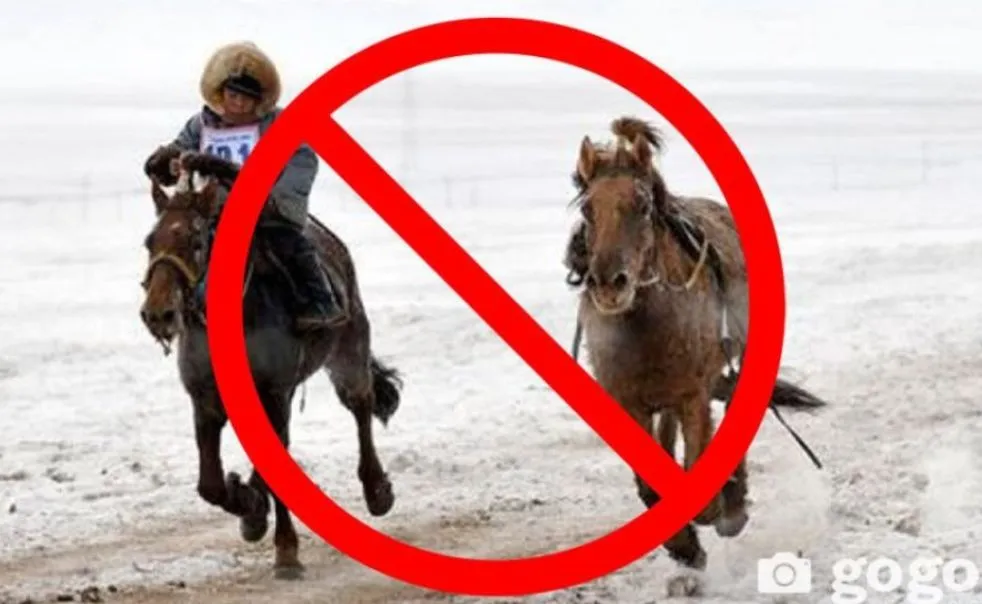The United Nations Calls on Mongolia to Reevaluate Decision

Elle
Feb 5th 2025
Likes
Share:
The United Nations Country Team in Mongolia is gravely concerned about the government’s intention to repeal Order No. 57 of 2019, which prohibits horse racing and preparatory races between 1 November and 1 May. The repeal was announced by the Deputy Prime Minister on 29 January 2025 and places the responsibility of organizing those events with local authorities, possibly including horse racing activities. This step has received disapproval from the UN, especially regarding the health and safety risks of the child jockeys.
Children engaged in horse racing, particularly as jockeys, are exposed to various severe dangers, according to the United Nations. Recruiting children for horse racing, many of whom are below legal age has always been of concern because of the hazardous nature of the sport. The United Nations Country Team for Mongolia has emphasized the protection of children from harmful activities-which has always been its position- over and over again.
The new decision, which removes the prohibition of races during the winter months, has raised concerns that it may lead to an increase in the recruitment of young children into dangerous environments. Such activities that would compromise the children’s health and safety risks or moral development must therefore be outlawed by this convention. The United Nations has pointed out that the use of children as jockeys for horse racing activities is dangerous and may fit the definition of the worst forms of child labor.
The country’s domestic legal framework reflects these international commitments. Mongolia’s Labour Law (2021) and Law on the Rights of the Child (2016) prohibit exploitative child labor, while the Law on Child Protection (2024) aims to prevent violence and exploitation against minors. The UN has emphasized that these laws should align with international human rights standards, particularly about child protection.
Child jockeys in Mongolia have already been the focus of the UN’s attention. Statements were made on 20 December 2019 and another on 2 July 2021. The reports detail the risks posed to children within the horse racing industry based on reports received and observations made by the United Nations human rights experts. The earlier communiqués drew strong attention to the risks faced by the child jockeys and the UN urged the Mongolian government to implement appropriate measures and review relevant policies around the recruitment of child jockeys for their protection.
Additionally, the United Nations conveyed the statements directly to Mongolia’s President, Prime Minister, and Speaker of Parliament to highlight the pressing need for child protection. The UN Country Team has consistently called for a legal prohibition against the recruitment of children under the age of 18 as jockeys, arguing that this should apply all year round and not only during the season.
The UN has also called on many stakeholders to ensure that Mongolia delivers on its obligations concerning international child protection laws. The statement called upon national and local governments, as well as parents, guardians, horse owners, trainers, enterprises, and caregivers, to help in this effort to prevent the exploitation of children.
“Respect for children’s rights is a shared responsibility,” the United Nations said. “All stake, including the public, must make sure that Mongolia fulfills its obligations under international human rights law.”
The UN is focused primarily on supporting the government and others involved in activities in Mongolia aimed at promoting the rights of children and the prevention of these rights being harmed. By protecting children’s rights while also mitigating the risks to these rights posed by horse racing, Mongolia has the opportunity to become a role model for the world in protecting the next generation from exploitation and harm.
According to the United Nations and others who are observing the situation closely, there is a glimmer of hope that the government of Mongolia will now act firmly for the health and safety risks of its children and the human rights obligations of the country. In the end, health and safety risks of children always ought to take precedence over cultural and sporting traditions that entail serious risks for their health.
